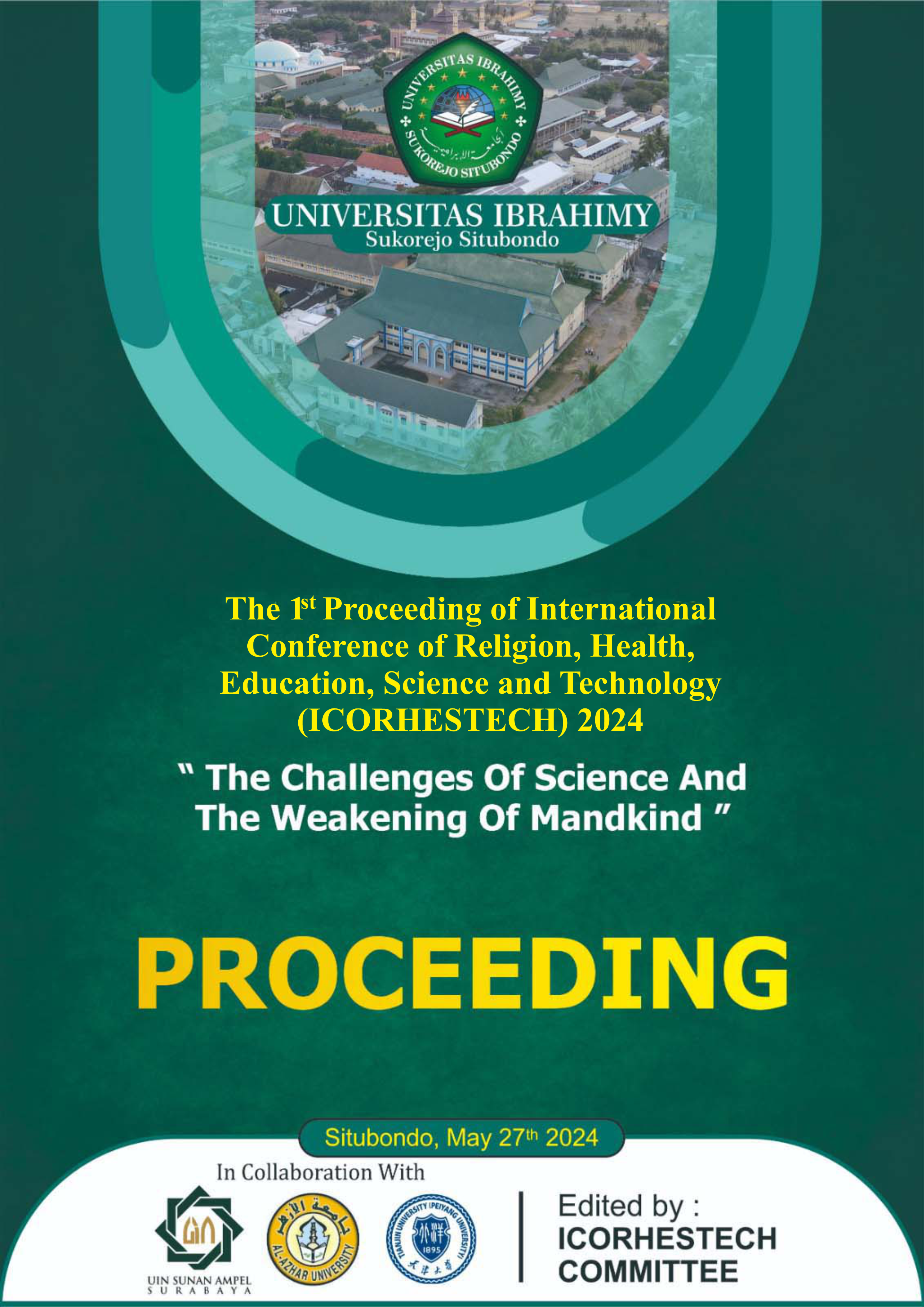Arab Ethnic Traditions Toward The Wedding: Analysis of The Meaning of The "Rahatan" Tradition in The Scope of The Arab Ethnic Family In The Arab Village of Besuki Religious and Social-Cultural Perspective
DOI:
https://doi.org/10.35316/icorhestech.v1i1.5648Keywords:
Tradition, Rahatan, Arab Ethnicity, Social CultureAbstract
Traditions are actions carried out by a group of people that are passed down from generation to generation. Indonesia, with its various tribes or ethnicities, certainly has different traditions according to forms of expression and adaptation to the natural contours it inhabits. This tradition is always realized to preserve the teachings of the ancestors, the same as the tradition that exists in the Arab ethnic group, specifically in the Arab village of Bondowoso. The Rahatan tradition is apparently still well preserved by Arab ethnic families. If you look at this tradition, it is almost the same as the tradition in India before a wedding, namely the mehendi ceremony which has a special meaning for the bride and groom before the wedding. In this research, there are two important questions, including, 1) What is the tradition of Rahatan within the scope of the Arab Ethnic Family? 2) What is the meaning contained in the Arab Ethnic Family's ritual of worship in the Besuki Arab Village from a religious and social cultural perspective. The approach used is qualitative with case study research methods and multidisciplinary analysis with descriptive analysis data processing to find out more than one point of view, namely social and cultural. This research aims to provide information regarding the meaning of the Rahatan tradition which is always realized by Arab ethnic families. The conclusion of this research is that the tradition of Rahatan has been carried out by Arab ethnic families from generation to generation to this day, which has a special meaning and has a correlation with social culture.
References
Firdausya, A. R., Sugiyanto, & Sumardi. (2015). PERKEMBANGAN KEHIDUPAN SOSIAL DAN KEBUDAYAAN MASYARAKAT KETURUNAN ETNIS ARAB -MADURA DI KAMPUNG ARAB BESUKI KABUPATEN SITUBONDO TAHUN 1881-2014. STUDENT RESEARCH ARTICLE (Artikel Penelitian Mahasiswa). https://repository.unej.ac.id/xmlui/handle/123456789/63504
Hasan, N., & Susanto, E. (2021). RELASI AGAMA DAN TRADISI LOKAL (STUDI FENOMENOLOGIS TRADISI DHAMMONG DI MADURA). CV. Jakad Media Publishing.
Pratama, Y. (2014, September 26). Fatwa Ulama: Batasan Dalam Menyerupai Orang Kafir. Muslim.or.id. https://muslim.or.id/22750-fatwa-ulama-batasan-dalam-menyerupai-orang-kafir.html
Purba, E., F., & Simanjuntak, P. (2011). Metode Penelitian (1 ed.). Percetakan SADIA.
Rahmah, A. (2016). Pembahasan Masalah Sosial dengan Pendekatan Post Disciplinary. Jurnal Informatika Terpadu, 2(2), Article 2. https://doi.org/10.54914/jit.v2i1.130
Ridlo, U. (2023). METODE PENELITIAN STUDI KASUS: TEORI DAN PRAKTIK (1 ed.). Publica Indonesia Utama.
Rifqiyati, D. U. (2020). Dinamika Perkawinan Endogami Pada Keturunan Arab Di Yogyakarta. Khuluqiyya: Jurnal Kajian Hukum Dan Studi Islam, 25–44. https://doi.org/10.56593/khuluqiyya.v2i1.38
Syakharani, W., A., & Kamil, M., L. (2022). BUDAYA DAN KEBUDAYAAN: TINJAUAN DARI BERBAGAI PAKAR, WUJUD-WUJUD KEBUDAYAAN, 7 UNSUR KEBUDAYAAN YANG BERSIFAT UNIVERSAL. Cross-Border, 5(1), 782–791.
UU No. 5 Tahun 2017. (t.t.). Diambil 26 Mei 2024, dari http://peraturan.bpk.go.id/Details/37642/uu-no-5-tahun-2017
Wahyuningsih, S. (2013). METODE PENELITIAN STUDI KASUS Konsep, Teori Pendekatan Psikologi Komunikasi, dan Contoh Penelitiannya (1 ed.). UTM Press.
Downloads
Published
How to Cite
Issue
Section
License








